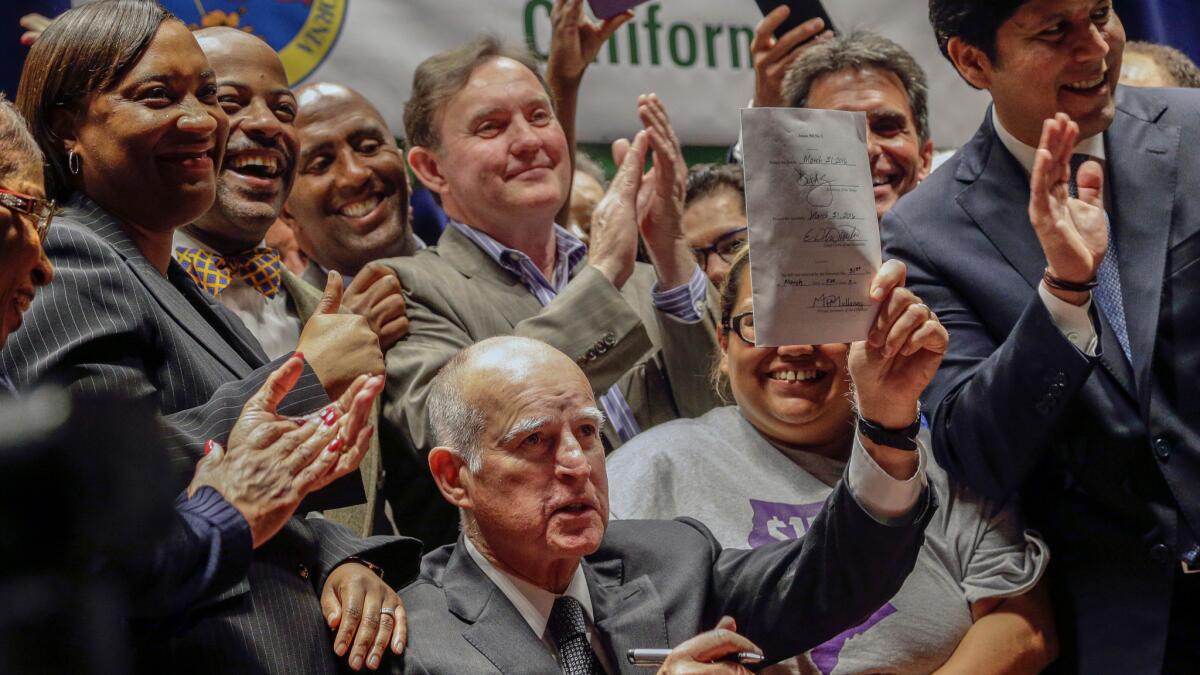Worker protections may hurt California’s economy, business group says

- Share via
California’s economy, one of the world’s largest, has long outperformed the overall U.S. rate of job creation and business growth. But according to the U.S. Chamber of Commerce, the state is losing its edge.
Perhaps not surprisingly, the chamber blamed the state’s labor regulations.
In the 1970s, California spawned more than 3,000 new businesses for every 1 million inhabitants, a rate that was much higher than the nation overall, according to a report released Monday by the chamber, which analyzed Census Bureau data. By 2013, the state was creating far fewer new companies, and barely outpacing the rest of the country.
California’s employment rate, once above average, has also fallen below the rest of the country, the report said.
The Chamber of Commerce suggests that the downsides of California’s strict labor rules are just beginning to take effect. The report says new “burdens” include the $15 minimum wage, mandated paid sick leave, and laws that make employers liable for labor violations against their temp workers.
“An increasing thicket of labor and employment mandates is jeopardizing the long-run performance of California’s economy,” wrote Jeffrey A. Eisenach, the author of the study and an economist at NERA Economic Consulting and the American Enterprise Institute, a conservative think tank.
The report is the latest attempt to untangle one of California’s enduring economic mysteries: How can a heavily regulated state grow so fast? Jobs in California grew by 2.8% over the 12 months ending in May, compared to 1.7% in the nation overall.
“For all the complaints about California’s job destroying regulation, it certainly hasn’t hurt tech employment and employment in other industries,” said Alec Levenson, an economist at USC. Levenson added that the state’s worker protections are unique, but haven’t turned California into a European country.
“There is always a trade-off between job growth at any cost versus job quality,” he said. “We are still a fairly flexible labor market.”
Follow me @NatalieKitro on Twitter
ALSO
Column: Now on Starbucks’ menu: Less health coverage
Pokemon Go’s success spells a big win for augmented reality
Relax, you’re not going to jail for sharing your Netflix password
UPDATES:
July 12, 10 a.m.: This article has been updated with additional information about the study’s author.
This article was originally published July 11 at 9 p.m.
More to Read
Inside the business of entertainment
The Wide Shot brings you news, analysis and insights on everything from streaming wars to production — and what it all means for the future.
You may occasionally receive promotional content from the Los Angeles Times.











